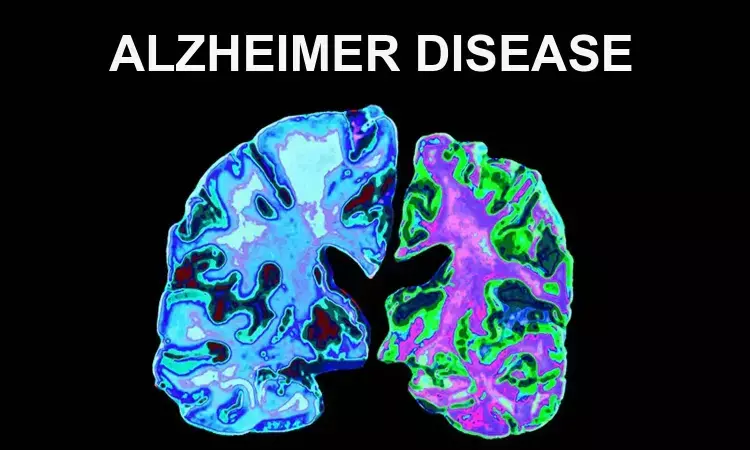- Home
- Medical news & Guidelines
- Anesthesiology
- Cardiology and CTVS
- Critical Care
- Dentistry
- Dermatology
- Diabetes and Endocrinology
- ENT
- Gastroenterology
- Medicine
- Nephrology
- Neurology
- Obstretics-Gynaecology
- Oncology
- Ophthalmology
- Orthopaedics
- Pediatrics-Neonatology
- Psychiatry
- Pulmonology
- Radiology
- Surgery
- Urology
- Laboratory Medicine
- Diet
- Nursing
- Paramedical
- Physiotherapy
- Health news
- Fact Check
- Bone Health Fact Check
- Brain Health Fact Check
- Cancer Related Fact Check
- Child Care Fact Check
- Dental and oral health fact check
- Diabetes and metabolic health fact check
- Diet and Nutrition Fact Check
- Eye and ENT Care Fact Check
- Fitness fact check
- Gut health fact check
- Heart health fact check
- Kidney health fact check
- Medical education fact check
- Men's health fact check
- Respiratory fact check
- Skin and hair care fact check
- Vaccine and Immunization fact check
- Women's health fact check
- AYUSH
- State News
- Andaman and Nicobar Islands
- Andhra Pradesh
- Arunachal Pradesh
- Assam
- Bihar
- Chandigarh
- Chattisgarh
- Dadra and Nagar Haveli
- Daman and Diu
- Delhi
- Goa
- Gujarat
- Haryana
- Himachal Pradesh
- Jammu & Kashmir
- Jharkhand
- Karnataka
- Kerala
- Ladakh
- Lakshadweep
- Madhya Pradesh
- Maharashtra
- Manipur
- Meghalaya
- Mizoram
- Nagaland
- Odisha
- Puducherry
- Punjab
- Rajasthan
- Sikkim
- Tamil Nadu
- Telangana
- Tripura
- Uttar Pradesh
- Uttrakhand
- West Bengal
- Medical Education
- Industry
Possible new PET tracer for early detection of Alzheimer's disease

New biomarkers for Alzheimer's disease are a priority area for researchers seeking to learn more about the disease and find possible methods of early diagnosis. Researchers at Karolinska Institutet in Sweden have now studied a new PET tracer that is an important diagnostic tool for the disease. The study on the tracer substance BU99008, which Molecular Psychiatry, can play a key part in the early identification of signs of Alzheimer's disease.
Alzheimer's disease is the most common form of dementia, affecting almost 47 million people around the world, according to Alzheimer's Disease International (ADI) - a figure that is expected to rise with increasing life expectancies.
The disease is as yet incurable, and causes considerable suffering for both patients and their families.
Alzheimer's is an insidious disease, with the changes in brain function onsetting 10 to 20 years before the clinically cognitive decline. It is therefore important to identify early disease markers.
One such marker is reactive astrogliosis, which provide early and rapid response to the progression of the disease. Astrocytes are the most important homeostatic cells in the central nervous system (CNS), with a broad spectrum of functions for optimal cerebral function and cellular energy supply, homeostasis.
They are also involved in disease and CNS damage through the defensive process called reactive astrogliosis.
The pathological role played by astrocytes in Alzheimer's disease is not fully understood, but several studies suggest that reactive astrogliosis may precede known early pathological signs of Alzheimer's disease, including amyloid plaque and tau tangles.
Researchers therefore need to develop tracers for astrocyte response for use in PET scans. PET imaging diagnostic technique is using selective and specific tracers - radioactive chemical molecules - for the early detection of pathological conditions and is already in routine in the detection of abnormal neuronal function and amyloid load in the brain, such as that caused by Alzheimer's disease.
Researchers at Karolinska Institutet, Uppsala University and Indiana University School of Medicine in the USA have studied a new astrocytic PET tracer, BU99008, which seems to be promising for Alzheimer's disease.
The researchers used brain tissue from six individuals who had died with Alzheimer's disease and seven healthy controls, who had died of other causes. The results provide a better understanding for BU99008-binding properties compared with other existing astrocytic Alzheimer's disease biomarkers in the brain.
"Our study shows that BU99008 can detect important reactive astrocytes with good selectivity and specificity, making it a potentially important clinical astrocytic PET tracer," says the paper's first author Amit Kumar, researcher at the Department of Neurobiology, Care Sciences and Society, Karolinska Institutet. "The results can improve our knowledge of the role played by reactive astrogliosis in Alzheimer's disease."
"As far as we can judge, this is the first time that BU99008 could visualises reactive astrogliosis in Alzheimer's disease brain," says principal investigator Agneta Nordberg, professor at the same department. "The results can have broad clinical implications that cover other disorders of reactive astroglial dysfunction."
Hina Zahid Joined Medical Dialogue in 2017 with a passion to work as a Reporter. She coordinates with various national and international journals and association and covers all the stories related to Medical guidelines, Medical Journals, rare medical surgeries as well as all the updates in the medical field. Email: editorial@medicaldialogues.in. Contact no. 011-43720751
Dr Kamal Kant Kohli-MBBS, DTCD- a chest specialist with more than 30 years of practice and a flair for writing clinical articles, Dr Kamal Kant Kohli joined Medical Dialogues as a Chief Editor of Medical News. Besides writing articles, as an editor, he proofreads and verifies all the medical content published on Medical Dialogues including those coming from journals, studies,medical conferences,guidelines etc. Email: drkohli@medicaldialogues.in. Contact no. 011-43720751


